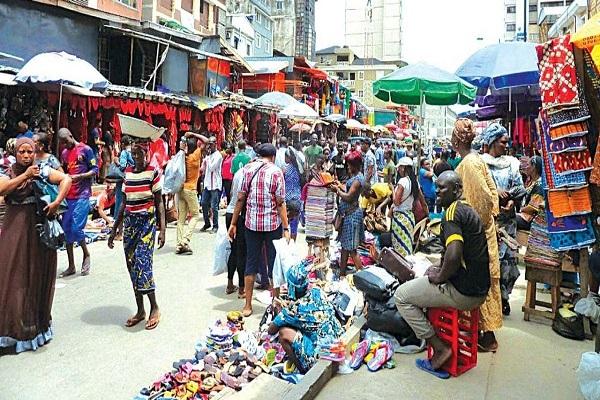Exploring The Vibrant Local Markets Of Taraba State
Taraba State, located in the northeastern region of Nigeria, is one of the country’s most culturally rich and agriculturally blessed states. Known for its scenic landscapes, lush vegetation, and diverse ethnic groups, Taraba is home to a wide range of local markets that not only drive the economy but also serve as melting pots of culture, tradition, and community life.
These markets are more than just places for buying and selling; they are vibrant spaces where people connect, where ideas are exchanged, and where the pulse of the state’s local economy beats the strongest. Whether you’re a farmer looking to sell your produce, a trader searching for wares, or a visitor eager to soak in the local lifestyle, Taraba’s markets offer something unique for everyone.
In this post, we take you on a journey through some of the most prominent and bustling local markets across Taraba State. From agricultural hubs to fish markets and cattle trading posts, here is a comprehensive list of markets that shape the commercial landscape of the state.
1. Gindin Doruwa Market, Jalingo
Located in Jalingo, the state capital, Gindin Doruwa Market is a central market that buzzes with daily activity. It offers everything from fresh fruits and vegetables to traditional wares and household items. The market’s convenient location makes it a go-to shopping destination for city residents and travelers alike.
2. Kasuwan Bera, Kofai
Kasuwan Bera in Kofai is known for its affordability and variety. This market caters to a multicultural crowd with over 50 tribes participating in its daily trade. It’s especially popular among students from the nearby Taraba State University who frequent it for its low prices on food items and clothing.
3. New Market, Wukari
As one of the most important commercial centers in southern Taraba, New Market in Wukari offers a diverse range of goods—from farm produce and livestock to electronics and textiles. Its growing popularity has helped stimulate local trade and provided new opportunities for small-scale entrepreneurs.
4. Ibi Fish Market
Situated in Ibi town along the Benue River, this market is one of Nigeria’s biggest fish markets. It draws traders from all across the country who come to buy fresh and dried fish in bulk. The market thrives due to its proximity to fishing communities and has become a significant source of income for thousands of local fishermen and fishmongers.
5. Iware Cattle Market
This market in Iware is a major center for cattle trading, attracting herders and livestock dealers from all over Nigeria. The cattle trade here supports a large number of households and plays a crucial role in the state’s agribusiness economy. Buyers come from neighboring states to purchase cattle for both domestic use and resale.
6. Yam Market, Wukari
Wukari also hosts a dedicated Yam Market, which becomes particularly vibrant during harvest season. Farmers from Taraba and nearby Benue State bring in truckloads of yams for sale. The market is a lifeline for many rural farming communities and serves as a major supplier for yam dealers across the country.
7. Central Market, Jalingo
Another key market in the state capital, Central Market offers a rich array of goods that span fresh produce, spices, household tools, fabrics, and local crafts. The energy in this market is palpable, and it reflects the daily rhythm of urban life in Jalingo.
8. Gomu Main Market
Gomu Main Market serves as an essential trading hub for local residents. It is a diverse and well-patronized market that helps support small-scale commerce and community livelihoods.
9. Pawas Central Market, Zing
Located in the town of Zing, Pawas Central Market is known for its strategic location and wide product offerings. It serves not only the town's population but also traders from surrounding villages.
10. Tella Market
Tella Market is a vibrant trading space in the Tella area. Known for its busy weekly market days, it attracts a large crowd of traders, buyers, and locals who rely on it for daily necessities and bulk purchases.
11. Donga Market
This market in Donga Local Government Area is one of the oldest and most culturally rich in the state. It plays host to diverse ethnic groups who come together to trade, socialize, and maintain traditional ties.
12. Nasarawu Market
Nasarawu Market caters to the everyday needs of its community by providing fresh food, groceries, clothing, and household goods. It is a convenient option for many locals due to its size and accessibility.
13. Tashan Lau Market
This market in Lau is particularly important for the sale of grains, vegetables, and household staples. Tashan Lau Market is also a social hub, where news and gossip are exchanged as freely as goods.
14. Garu Market
Garu Market is a major center for local agricultural produce. Farmers from nearby villages bring in their harvests to sell, while buyers come in search of fresh and affordable food items.
15. Maihula Market
Last but not least, Maihula Market is one of the community markets that helps bridge rural and urban trade. With a good mix of fresh produce, clothing, and locally made crafts, it’s a vital part of the economic fabric of its region.
Conclusion
Local markets in Taraba State are more than just places for commerce—they are cultural landmarks that bring together the diverse peoples of the state in unity and shared purpose. These markets fuel the local economy, support thousands of livelihoods, and preserve the rich traditions of Taraba’s communities.
For anyone visiting Taraba, taking a walk through any of these bustling markets offers a firsthand experience of the state’s soul. From the scent of freshly harvested yams in Wukari to the lively cattle auctions in Iware or the vibrant fish stalls in Ibi, every market tells a unique story—one worth exploring.
If you're a trader, buyer, tourist, or simply a lover of local culture, Taraba's markets are not just worth seeing—they are worth celebrating.





